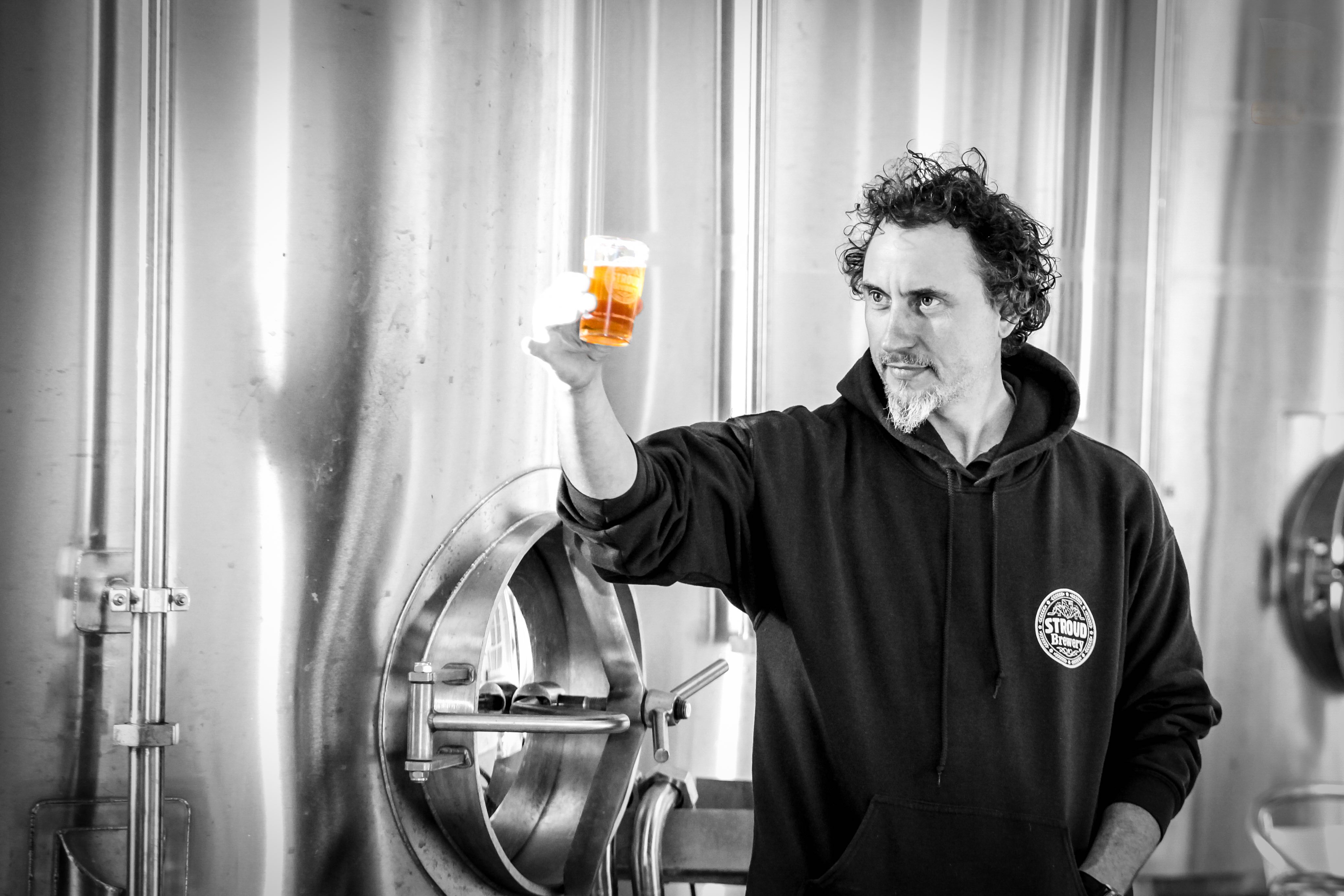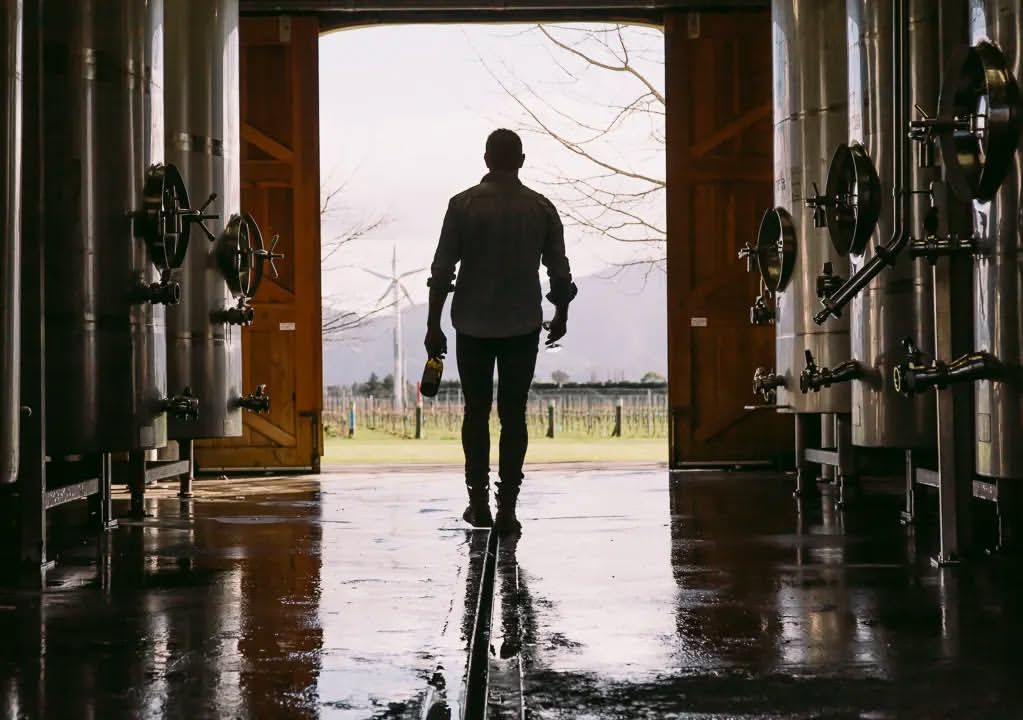Greg Pilley is as good as telling a story as he is making craft beer. Richard Siddle talks to him about a rich and varied career that has culminated in establishing the Stroud Brewery, one of the fastest growing craft breweries in the UK.
We live in an age when all you need to do is turn on your smartphone, fire up your social media feed and within a few minutes you will be sent the next inspiring, feel good video either from a professional TED talk or some highly charged emotional tale of rags to riches that will have you welling up in-between the adverts before the footy comes back on again.
But how often are we genuinely inspired in our every day jobs? The world of drinks is a competitive place at the best of times and just doing enough to keep yourself going is normally the best that most businesses and individuals aspire to.
Then there are those characters who you come across that really are just a bit different. The ones with an idea or way of doing business that genuinely stands out from the competition.
Like Greg Pilley and Stroud Brewery. Now on the face of it starting up a craft brewery in the town where you live and going as far as putting that town’s name on your masthead is not going to get you very far on Dragon’s Den.
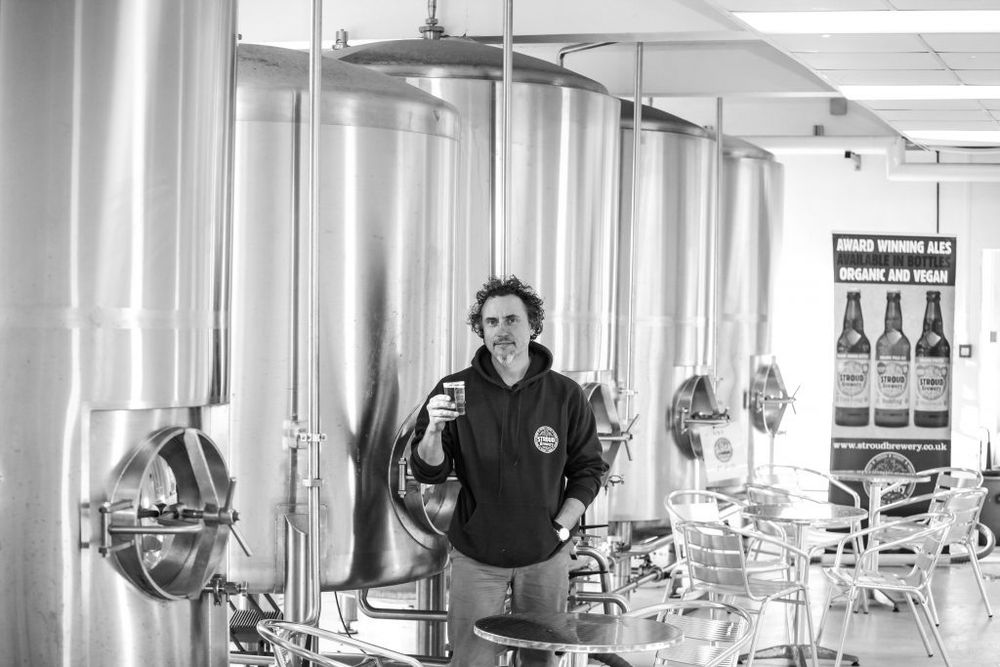
Greg Pilley at home in his brewery
A story worth telling
But it’s not just about the craft beer that Pilley makes, it’s the story behind it and how he got to be making beer in the first place that makes this a story worth reading. Believe me.
For Pilley is not your average craft brewer. In fact he spent much of his career beforehand in remote parts of Africa working as an ecologist and conservationist, including time helping to protect elephants in the Yankari National Park in Nigeria.
During his time travelling around Africa he developed a passion for telling the story of each of the continent’s 39 different countries, rather than being defined as one big land mass.
This is where the beer comes in. He observed how each African country had developed their own very unique local beers , with traditional alcoholic drinks playing an important part in local communities. He wanted to express and explore those differences and was fortunate enough to persuade Guinness Brewing Worldwide to back him in what turned out to be a five year project.
“They were a great support and allowed me (and my partner of that time) to travel around and try and understand why traditional alcoholic drinks areso important to each country’s local economyand how the varietyreflects the geography andclimate. and the styles of beer that can be made there. It’s why fruit beers are so popular in the more temperate countries. Andin tropical areas they tap a whole array of palm trees for the sap – palm wine. All of which could potentially help Guinness know the social context of the countries where they were trying to sell their own beers,” he explains.
“Bottled beers are expensive for most people in Africa, for example, but even despite this people often preferred prefered to drink the local brews.”
There was even talk of turning his work into a documentary, but things moved on.
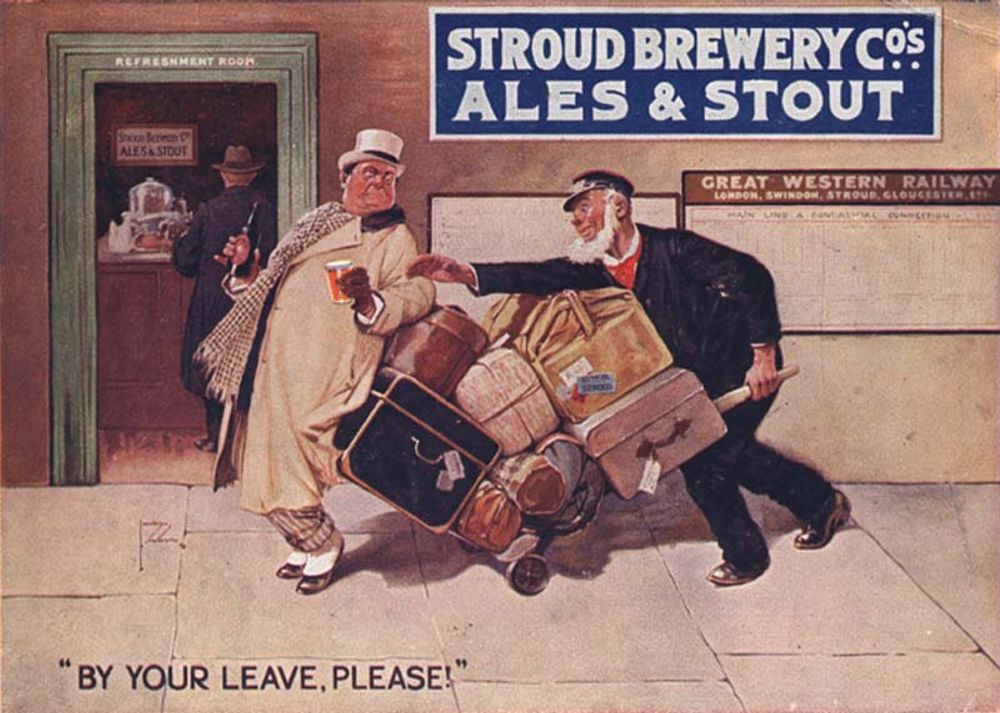
Stroud had previously had its own brewery that had fallen to the wayside long before Greg Pilley came with his new version
Return to soils
That’s when Pilley’s world started to rotate around vegetables and his very novel idea at the time of setting up his own organic, sustainable “veggie box” scheme. In fact it was so unique at the time that he ended up working for the Soil Association helping to write their technical guideto help new start box schemes. “This was all 20 years ago when there were no farmers markets. The local food team were facilitating the first few and consideringhe guidelines for how future farmers markets could run,” he recalls.
His work with the Soil Association brought him to Stroud, in the heart of Gloucestershire, where he got involved in a local community owned farming scheme. It was from here, back in 2006, that he soon realised he could combine his philanthropic spirit and fascination with beer and create Stroud’s very own craft brewery.
His ambition was to start an authentic craft brewer that would support the local community, environment and other similar businesses.
He could not get much more authentic when he first started out as it was just him, working out how to make enough beer to keep the brewery going on a daily basis. “To be honest when I first started out it was more of a lifestyle thing than an actual ambition to turn it into a craft brewery,” he says. “It’s sort of grown up around me.”
Local support
The local community has been behind the Stroud Brewery from day one as many in the area have invested in it. To help get the brewery going Pilley was able to raise £30,000 from a combination of family, friends and locals.
His first official beer came in May 2006,Budding Pale Ale, named after Edwin Budding, arguably Stroud’s most important ever resident as the inventor of the lawn mower.
“Timothy Taylor is very popular locally, so I set out to match the same level of bitterness. It’s worked very well for us,” says Pilley of his number one selling beer.
But it’s one thing having a good beer on your hands, it’s another thing selling it. For that Pilley relied on good old hard work. “You soon find out that your level of sales is proportionate to the number of phone calls and visits you put in to local pubs and bars,” he says.
That graft, though, soon paid off as the demand on the brewery grew to take on more staff, and ramp up the production. By 2008 he was brewing three days a week and took on a full time brewer.
Then the recession hit. Piled feared he had expanded at just the wrong time, but it also marked the birth of craft beer and he actually saw Stroud’s sales double over the next year three years as more people looked to support their local breweries and other businesses.
“Community not consumerism became more important. Going out and sharing experiences with mates has also become more important than just owning stuff,” he says.
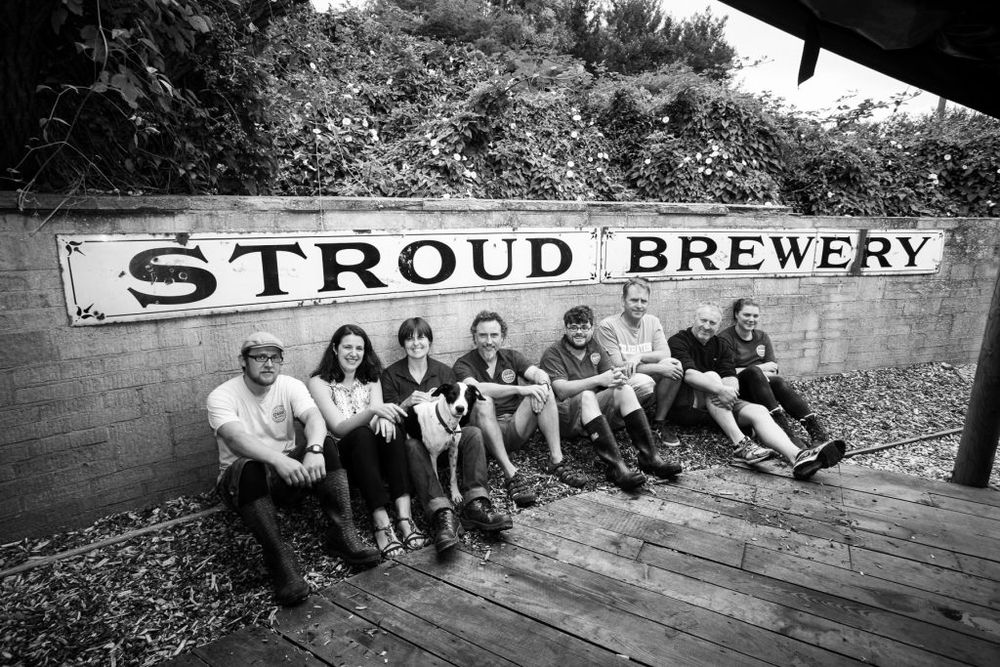
A small but growing team at Stroud Brewery
Action stations
The brewery was soon in action five days a week and he was able to acquire the unit next door to keep up with production.
It’s not as though he’s had the local area to himself. The number of breweries across Gloucestershire has grown from 12 in 2006 to over 40 now. Nationally those figures have jumped from 700 in 2006 to over 2,000.
“We’re all fighting for space, so you have to have something interesting to say. Which for me has to be around being genuine about our products,” he explains.
He is also committed to using locally grown organic barley and works with Warminster Maltings, a traditional floor maltings to get the right combinations he needs. It’s a little harder to find the variety and quantities oforganic hops which has also seen Pilley and his team experiment with flowers and other botanicals, resulting in beers like its Aledeflower Ale.
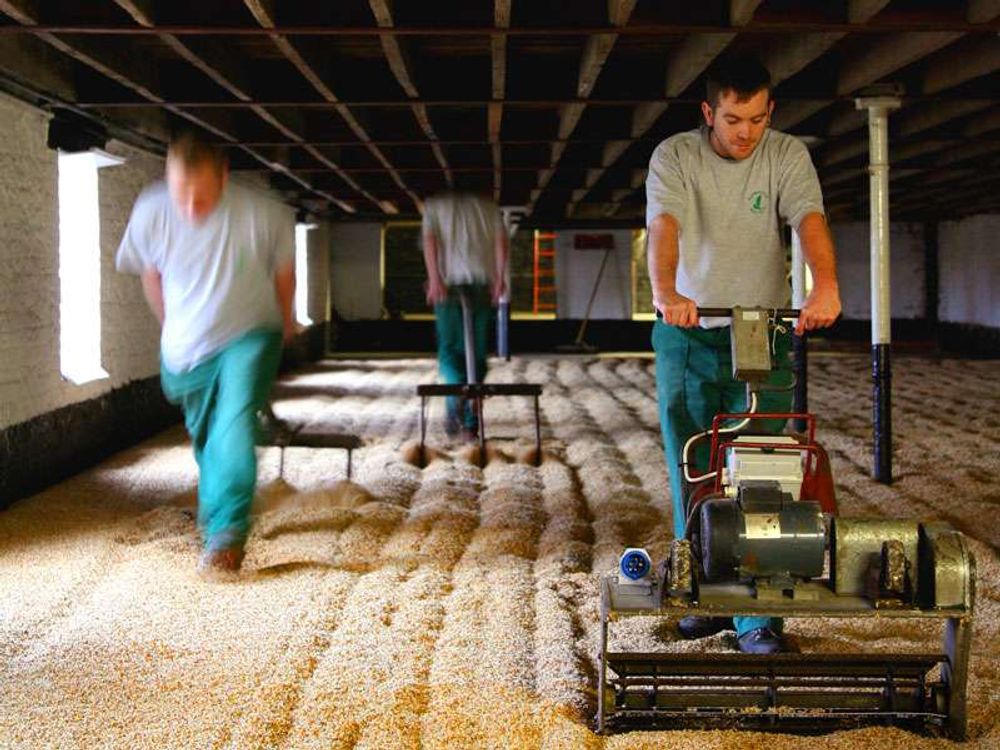
Traditional floor maltings from Warminster is one of the Stroud’s key suppliers
Stroud’s continued growth has come through a combination of word of mouth, strong local pub sales, a growing wholesale business, backed up by additional funding through an EU grant and another round of crowdfunding that raised £100,000 within a fortnight.
All of which means it is now looking to move to larger premises just around the corner from its current site in the town to cope with all its increased volumes both in the UK and increasingly overseas.
A bigger site also means a larger team and the Stroud Brewery is now employing 10 people, including three brewers, two in sales, an office manager, an external events manager and its own bar supervisor.
The business is now turning over just over £950k a year and continues to grow around 15% a year. “We’re working several national wholesalers, including Vintage Roots, to help get our beers out into the trade.
Going organic
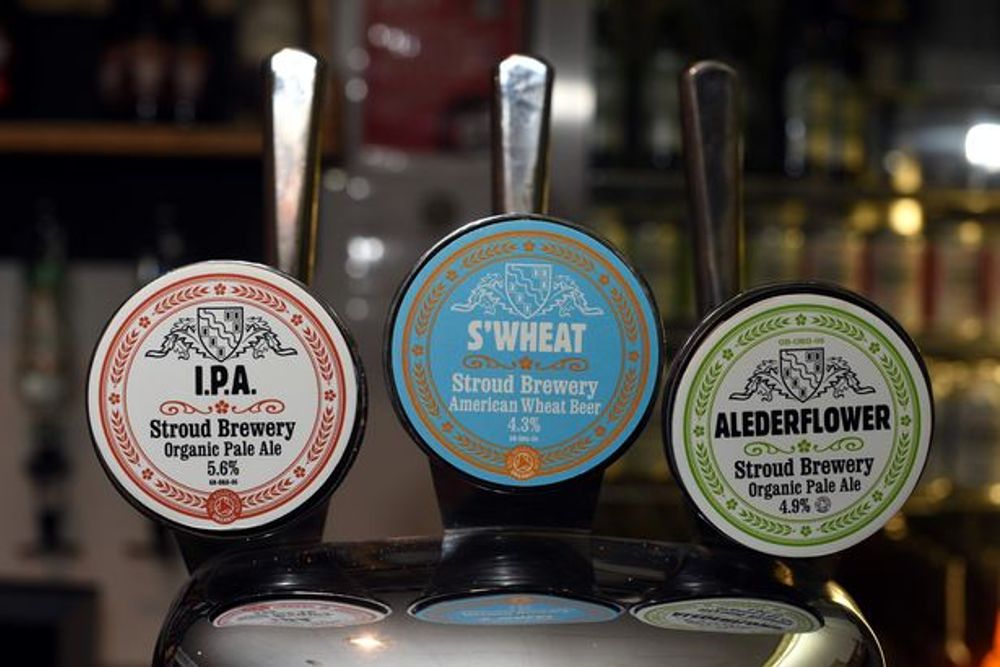
It was also important to Pilley that he ran an organic brewery and although it has taken him some time he has been prepared to take the necessary steps to make sure he was accredited by the Soil Association. It can also claim to be vegan friendly too. “We are only one of five dedicatedorganic breweries in the country,” he says.
Being organic and using local malted barley comes at a cost. “Organic hops are about 25% more expensive. Then you have to be able to sell that organic story into the pubs and your customers and explain why your beers are a little more expensive,” says Pilley. “Slowly people are realising that not all landlord beers are the same.”
“Going organic took about £15k-£20k off our bottom line. That’s the kind of commitment you have to make. You are paying around £500 for a ton of conventional malted barley, £700 for malted local barley, but if you go for organic malted local barley then you have to be prepared to pay £900 a ton. And we’re using up totwo tons a week.”
Pilley imports a lot of his hops from New Zealand that has the added advantage of being disease free. “They have very strict laws there,” he says. “We also sourced from central and Eastern Europe. The demand for organic hops is growing in the US as well.”
It’s also therefore important to be constantly refreshing your range with new styles and flavours to support your best selling beers. Stroud Brewery can now boast a cherry stout, Shwarzwälder, a series of pale ales including Maltzart, a Vienna pale ale, O.P.A, an organic pale ale, and Resolution, an American pale ale, S’Wheat, an American wheat beer and bitters, including Tom Long and a Premium organic lager.
Local support
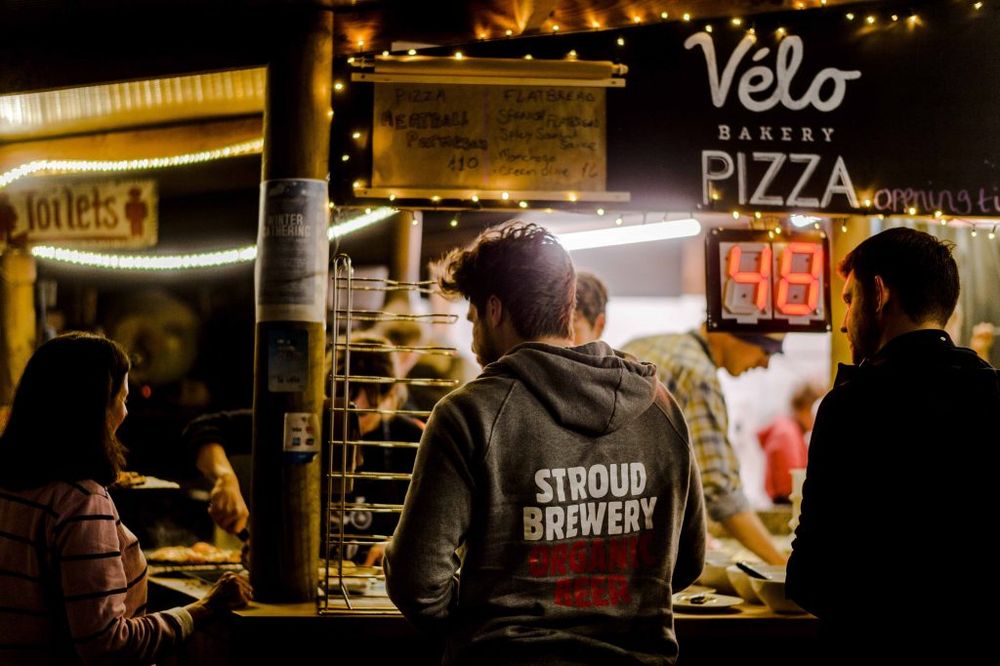
Pizzas and beers have made Stroud Brewery a destination in its own right
He’s been true to his word in terms of supporting local communities. In fact one of his friends, a , has even given up a job as a teacher to run a business making and selling wood fired pizzas, the Vélo Bakery at the brewery. Every Thursday to Saturday night he fires up the brick built ovento sell pizzas exclusively to all the locals that come from right round the region to brewery’stap bar that has become a major side business in its own right.
The bar itself now accounts for the sale of 10% of the brewery’s production, selling 1,200 of the 12,000 pints it produces a week and contributes 25% of its gross turnover. And it’s only open on Thursday, Friday and Saturday night.
“That’s about 40% of our net profit. People are happy to pay the full value for the beer and its immediate cash flow back into the business,” says Pilley. “But it’s all part of the authentic approach of the brewery. Giving people the chance to come in and sit down with the tanks next door. We started with just a table and a few chairs and we now have 200 people plus every night who are eating between 100 and 200 pizzas each evening .”
Pilley is clearly proud of the fact he has been able to build a business that not only support him and his family, but have become central part and socialising hub for the local community.The tap bar is a constant hive of events be it hosting local parish meetings, to putting on events, holding concerts for music, hosting basket weaving evenings.
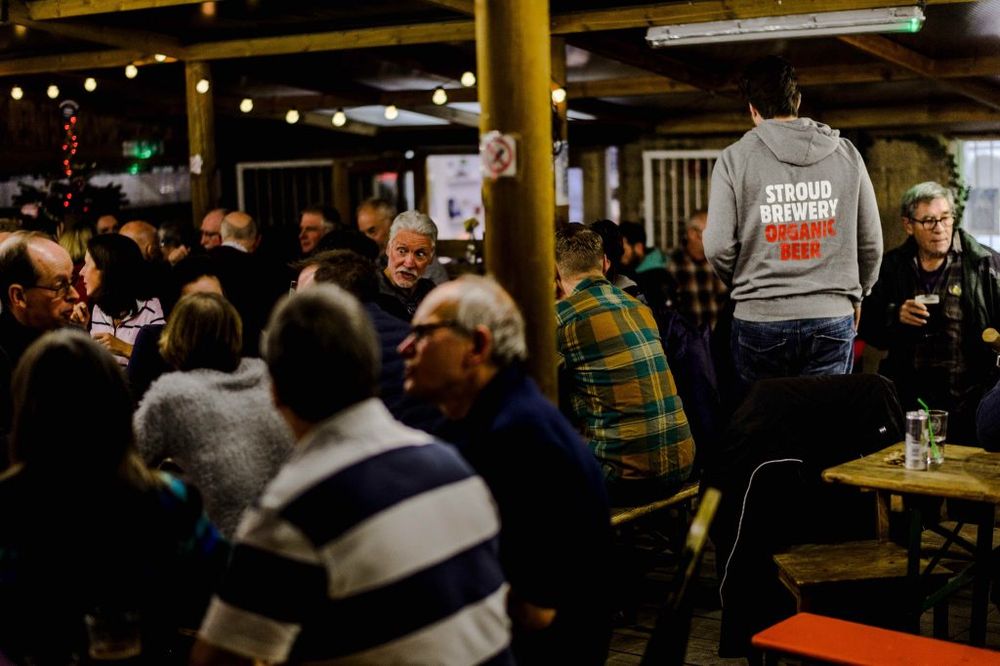
Stroud’s bar now accounts for a quarter of its gross turnover
Serving the on-trade
That community also stretches to bars and restaurants right throughout Gloucestershire, Hampshire, and the South West. He says the new brewery will have the capacity to service more national distribution and is keen to develop its on-trade wholesale business.
Pilley is understandably cautious about his off-trade strategy and is not prepared to supply his beers at a price “below what we need for our product”. He is keen to work with operators and specialists that are prepared to sell at its RRPs. “But we won’t be going down the multiple retail route. We have been asked by our local Waitrose, but we won’t even sell to them,” he says. “We want to go more the independent route to market. For all our initial growth we are still a small brewery.”
The specialists organic stores, and chains like planet organic are a good target customers for Stroud.
What’s most important to Pilley is to be able to work with restaurants, bars, events and specialist merchants who are interested in their back story, who value why their beers are different.
“We hope we can find our niche. Be seen as the organic beer offer. So if a restaurant is looking to source organic and sustainable produce and ingredients then we can be the right beer choice for them as well.”
If they do they can be assured of a great quality beer to sell, and an excuse to hear the amazing back stories from Pilley’s own career.
